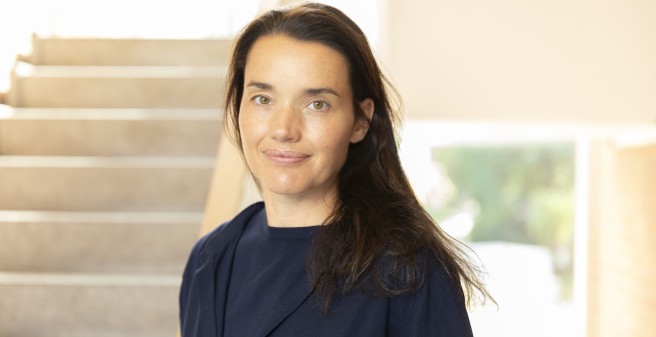Meet the future
When Prof. Dr. Madeleine Bunders moved from Amsterdam to Hamburg six years ago, she had a revolutionary technology in her luggage: organoids, which can be used to replicate human organs on a microscopic scale. The pediatrician, who works at the III. Medical Clinic of the UKE and at the Leibniz Institute of Virology, researches the interactions between human immune cells and tissue cells in tissue regeneration – since September 1 with a Heisenberg Professorship of the German Research Foundation (DFG).
For Prof. Madeleine Bunders there was never any question that she would specialize in pediatrics. "Taking care of sick children and then seeing them smile again is something special, which fills me with joy," she says, her eyes shining. Many years, the Dutchwoman, who has always combined clinic and research, has been investigating the child's immune system. Scientific work has always been present, also during her medical studies, which she mainly completed at the Medical Faculty in Amsterdam; with stopovers of several months in London and in Yogyakarta, Indonesia, for immunological research projects. After her training, the 45-year-old visited the Hubrecht Institute in Utrecht, where she learned the organoid technology that is now used in many areas of medical research.
The human immune system fascinates her. "Because it is so complex and, like our brain, never stops learning," says the clinician-scientist. She spent a long time studying how the immune system continues to develop during our lives. How immune cells gather information from their environment, layer by layer, in order to be prepared against external threats – such as viruses, bacteria or parasites. "But we also investigate in our studies the damage immune cells can do and make us sick. For example in the case of premature babies where a balanced immune response against pathogens from outside is not yet ready and overreacts triggering severe inflammatory reactions in the intestine." Our immune system can therefore do both: protect or – if something goes wrong in the developmental process – also cause inflammation. But it can do even more. In the course of her research, Prof. Bunders started to investigate a less well-known task of the immune system. "Our recent findings show that the immune system in the child also helps the development of organs," she says. And immune cells are increasingly recognized for their role to heal diseased tissues.
It’s exactly this thesis that Prof. Bunders and her team want to investigate as part of her Heisenberg professorship now. "In order to understand more precisely how the immune system and tissues interact and communicate with each other, we are using organoids from the intestine, liver, lung and kidney," she says, looking through the microscope at a collection of cells that float like black-rimmed circles in the Petri dish. Intrigued, she explains, "The great thing about organoids is that they mature from human tissue into a three-dimensional mini-organ in the lab in up to four weeks and retain many characteristics of the original organ." These mini-organs allow a better understanding of diseases in individual patients. But also provide the opportunity to generate better targeted and personalized therapies. And, offer perhaps in the future even immunotherapies for tissue regeneration.
But there is still a long way to go until then, Prof. Bunders dampens expectations and carefully sips her tea, which she prefers to drink deep black with milk since her time in London. "Here at the UKE, thanks to the fantastic cooperations between the scientists at the research campus and clinics, we have ideal conditions to conduct exciting studies. Also with the help of UKE led research networks, such as the SFB 1328 (Adenine Nucleotides in Immunity and Inflammation) and the SFB 1192 (Immune-Mediated Glomerular Diseases)," she underlines with enthusiasm. In general, she feels very comfortable in Hamburg. In addition to her research, she also enjoys teaching and would like to return to clinical work. Fortunately, the clinic is only a stone's throw away by bicycle – a Dutch bicycle for Prof. Bunders, of course!
Text: Nicole Sénégas-Wulf, Photo: Axel Kirchhof
